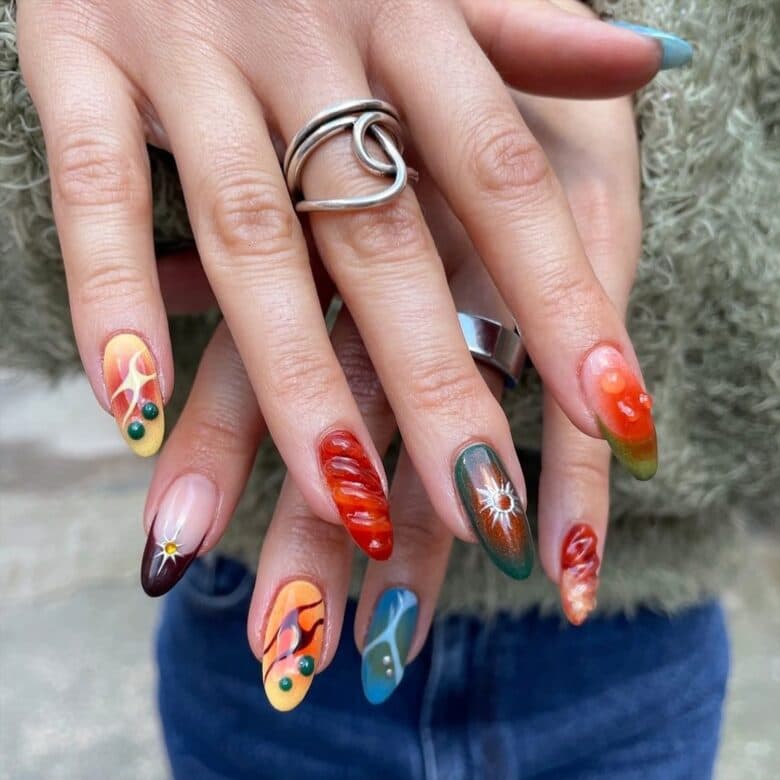This artist is selling makeshift face masks for the price of an abortion
Currently in the midst of a global pandemic and bracing us for a life-changing economic turn, it’s safe to say that none of us are feeling okay right now. Yet current inequalities are being aggravated by the crisis as those with financial power hoard resources and individuals in precarious employment have lost their jobs without sufficient compensation. Across the pond in the US, the COVID-19 crisis is even being used by lawmakers to restrict abortion access; a move which not only threatens womxn’s control over their own bodies but contributes to gender inequality. When artist Hannah Bates became aware of this issue, she decided to fight back @pantyrespirator. In order to pass comment on the vital importance of abortion access, she is selling her used panties as makeshift face masks for the price of $950 a pop. But whilst her intentions are in the right place and she’s clearly stated that she will be donating proceeds to abortion clinics and Planned Parenthood, she’s been kicked off of Etsy and Depop and slut-shamed online. We caught up with Hannah to hear about why you shouldn’t be coming for her — you should be coming for Conservative lawmakers.
Hey Hannah! First thing’s first, could you tell us a bit about who you are?
I’m a New York-based multidisciplinary artist working with photography, performance, installation, textile and sound to create illusions that critically examine women, gender and sexuality.
You’ve been gaining some attention online for your @pantyrespirator project. Could you explain more about what that is?
Basically @pantyrespirator is a multi-disciplinary social media performance that critically examines sex, crisis, and politics to validate reproductive rights as essential health. Beginning 1st April I started to make face masks out of my used panties and list them for sale on sites like Depop and Etsy, as well as on my website. They’re priced at $950, which is roughly the cost of an abortion, as a way to hold abortion, seen as a “women’s issue”, to the same value as protecting everyone’s health during a pandemic.
That’s such a vital issue to be talking about right now. So far from what you’ve seen, how has COVID-19 impacted upon the provision of abortion in the US?
Conservative states are taking advantage of the crisis as an excuse to restrict reproductive rights, which is a tragedy because an abortion is a timely, life-altering procedure. It can directly change the course of someone’s life. In Texas, for example, they moved to limit access to abortion then a federal court struck down the ban but less than 24 hours later an appeal reinstated the ban. It’s even more harmful that resources are being used to fight about banning abortion when people are dying from COVID-19.
With all that in mind, what are you hoping to communicate with the project?
That abortion is essential and that it’s time-sensitive. There are people in these states who are pregnant that can’t afford to have a child but who also can’t afford to travel to another state for an abortion. Abortions can mean life or death for people with high-risk pregnancies. I want to raise awareness around this and also proceeds from the panty masks sold are going to independent clinics that serve communities in Texas, Alabama, Iowa, Arkansas, Oklahoma and Ohio, as well as Planned Parenthood.
What has the reaction to the project been?
I’ve received a mix of supportive and opposing reactions. I’ve been told that I’m exploiting the crisis to profit, slut-shamed by women and men, and told that I’m not a real artist because I’m a “slut”. These criticisms are masking it as me being problematic, suggesting that I’m exploiting the crisis to profit. But it’s lawmakers that are being problematic; they’re exploiting the crisis to take reproductive rights away from people.
Many sex workers have been negatively impacted by the COVID-19 crisis – is your project also creating awareness around what they’re experiencing?
The project correspond with a flux of online work due to the COVID-19 crisis, and it reflects privacy issues inherent in that shift. A lot of different people have been affected in different ways. While it’s true that sex workers have been negatively affected by COVID-19, the project isn’t in direct dialogue with individual sex workers’ experiences, nor is it commenting on the complexities of this issue as an authority.
What would you like the wider world to learn from the current COVID-19 crisis?
This project only really speaks to the COVID-19 crisis as it impacts reproductive rights in the United States. I hope that it can spread awareness and encourage donations to the organisations and independent clinics that serve communities in danger.
If you are interested in the issues raised in this interview and want to donate to independent clinics protecting reproductive rights in the US, head here. To see more of Hannah Bates’ work, check out her website here or follow her on Instagram.

